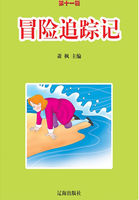During our subsequent detention at Shupanga, he proceeded as far up the Shire as the Upper Cataracts, and saw the mere remnants of that dense population, which we at first had found living in peace and plenty, but which was now scattered and destroyed by famine and slave-hunting.The land, which both before and after we found so fair and fruitful, was burned up by a severe drought; in fact, it was at its very worst.With most praiseworthy energy, and in spite of occasional attacks of fever, he then ascended the Zambesi as far as Kebrabasa; and, what may be of interest to some, compared it, in parts, to the Danube.His estimate of the highlands would naturally be lower than ours.The main drawbacks in his opinion, however, were the slave-trade, and the power allowed the effete Portuguese of shutting up the country from all except a few convicts of their own nation.The time of his coming was inopportune; the disasters which, from inexperience, had befallen the Mission of the Universities, had a depressing effect on the minds of many at home, and rendered a new attempt unadvisable; though, had the Scotch perseverance and energy been introduced, it is highly probable that they would have reacted, most beneficially, on the zeal of our English brethren, and desertion would never have been heard of.After examining the country, Mr.
Stewart descended the Zambesi in the beginning of the following year, and proceeded homewards with his report, by Mosambique and the Cape.
On the 7th of April we had only one man fit for duty; all the rest were down with fever, or with the vile spirit secretly sold to them by the Portuguese officer of customs, in spite of our earnest request to him to refrain from the pernicious traffic.
We started on the 11th for Shupanga with another load of the "Lady Nyassa."As we steamed up the delta, we observed many of the natives wearing strips of palm-leaf, the signs of sickness and mourning; for they too suffer from fever.This is the unhealthy season; the rains are over, and the hot sun draws up malaria from the decayed vegetation; disease seemed peculiarly severe this year.On our way up we met Mr. Waller, who had come from Magomero for provisions; the missionaries were suffering severely from want of food; the liberated people were starving, and dying of diarrhoea, and loathsome sores.
The Ajawa, stimulated in their slave raids by supplies of ammunition and cloth from the Portuguese, had destroyed the large crops of the past year; a drought had followed, and little or no food could be bought.With his usual energy, Mr. Waller hired canoes, loaded them with stores, and took them up the long weary way to Chibisa's.
Before he arrived he was informed that the Mission of the Universities, now deprived of its brave leader, had retired from the highlands down to the Low Shire Valley.This appeared to us, who knew the danger of leading a sedentary life, the greatest mistake they could have made, and was the result of no other counsel or responsibility than their own.Waller would have reascended at once to the higher altitude, but various objections stood in the way.The loss of poor Scudamore and Dickinson, in this low-lying situation, but added to the regret that the highlands had not received a fair trial.
When the news of the Bishop's unfortunate collisions with the natives, and of his untimely end, reached England, much blame was imputed to him.The policy, which with the formal sanction of all his companions he had adopted, being directly contrary to the advice which Dr. Livingstone tendered, and to the assurances of the peaceable nature of the Mission which the Doctor had given to the natives, a friendly disapproval of a bishop's engaging in war was ventured on, when we met him at Chibisa's in November.But when we found his conduct regarded with so much bitterness in England, whether from a disposition to "stand by the down man," or from having an intimate knowledge of the peculiar circumstances of the country in which he was placed, or from the thorough confidence which intimacy caused us to repose in his genuine piety, and devout service of God, we came to think much more leniently of his proceedings, than his assailants did.He never seemed to doubt but that he had done his duty; and throughout he had always been supported by his associates.
The question whether a Bishop, in the event of his flock being torn from his bosom, may make war to rescue them, requires serious consideration.It seems to narrow itself into whether a Christian man may lawfully use the civil power or the sword at all in defensive war, as police or otherwise.We would do almost anything to avoid a collision with degraded natives; but in case of an invasion--our blood boils at the very thought of our wives, daughters, or sisters being touched--we, as men with human feelings, would unhesitatingly fight to the death, with all the fury in our power.
The good Bishop was as intensely averse to using arms, before he met the slave-hunters, as any man in England.In the course he pursued he may have made a mistake, but it is a mistake which very few Englishmen on meeting bands of helpless captives, or members of his family in bonds, would have failed to commit likewise.















